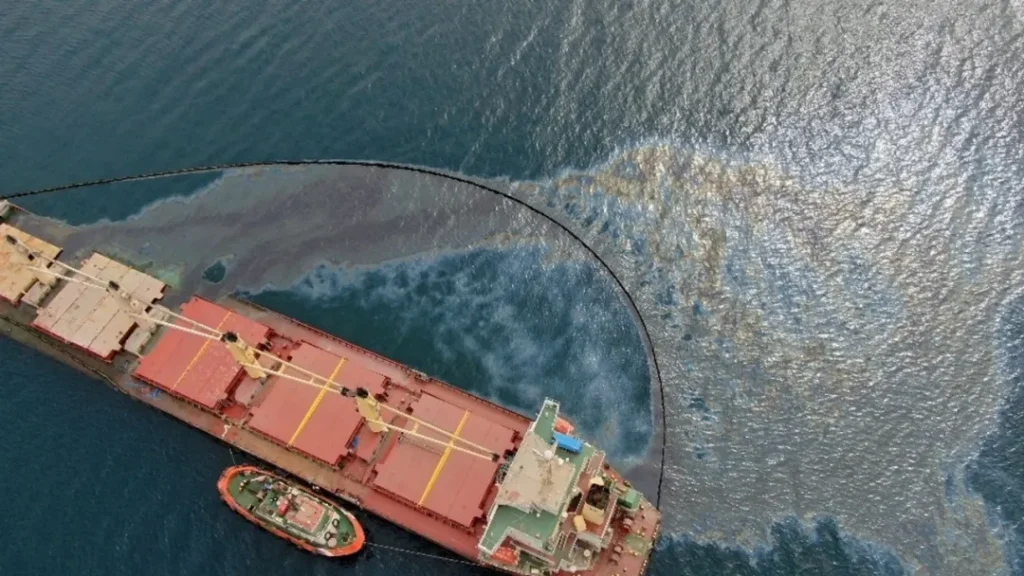Fuel spill at Spanish port

On September 2, a severe oil spill occurred at the Port of La Luz in Gran Canaria, Spain. During a refueling operation, approximately three tons of very low sulfur fuel leaked into the sea from a cargo ship, creating a large oil slick that quickly spread, leading to the closure of several beaches.
The oil slick now covers an area about 2 kilometers long and 400 meters wide. It is estimated that, driven by wind and ocean currents, the slick is moving southeast at a speed of 0.5 nautical miles per hour. Given the environmental and safety threats to Gran Canaria, the local government issued a red alert and declared a state of emergency.
Spain’s emergency services responded swiftly, deploying three patrol boats and an aircraft to monitor and contain the spill. Local police also used drones to survey the coastline and installed oil containment barriers at sea to prevent further spread of the slick.
The vessel involved, a general cargo ship registered in Liberia, had arrived at La Luz Port from Mindelo, Cape Verde, on September 2. The fuel leak occurred during refueling operations later that evening, with around three tons of very low sulfur fuel spilling into the sea. The cause of the spill remains unclear, and an investigation is underway. Given the significant amount of oil spilled, the shipowner may face hefty fines.
Similar oil spill incidents have occurred in Spanish waters before. On July 23, a cargo ship near Ceuta leaked about one ton of fuel into the sea during a refueling operation due to improper handling, contaminating Benitez Beach, the port breakwater, and San Amaro Beach, posing a serious threat to the local ecosystem. In response, Spanish authorities quickly detained the ship and demanded a €120,000 bail payment before it could leave the port. Additionally, disciplinary procedures were initiated to determine the final fine.
On April 30, a Turkish oil tanker experienced a significant fuel spill at the Levante terminal in Ceuta when a crack in the tank caused a leak of 25,000 to 30,000 liters of fuel, marking the largest spill in Ceuta’s waters to date. Following the incident, the tanker was detained, and the port authorities demanded a $77,000 deposit, covering a fine of about $64,000 and $13,000 in cleanup costs. The final fine remains undetermined, but reports suggest it could range from $214,000 to $267,000.
These incidents serve as a stern warning to shipowners and related companies. Oil spills not only devastate marine ecosystems but also incur enormous cleanup costs. Particularly in Europe, where environmental regulations are becoming increasingly strict, any fuel spill can result in hefty fines, cleanup expenses, and long-term legal consequences for shipowners or involved companies. Shipowners and operators should remain vigilant, improve management practices, and ensure safe operations to prevent similar accidents.
The significant fines for oil spills present a serious challenge to ship management companies. Such incidents not only lead to financial losses but can also trigger lawsuits and damage reputations. Therefore, it is crucial for ship operators to strengthen oil spill prevention measures and ensure that crews adhere strictly to operational procedures during refueling and daily operations.





